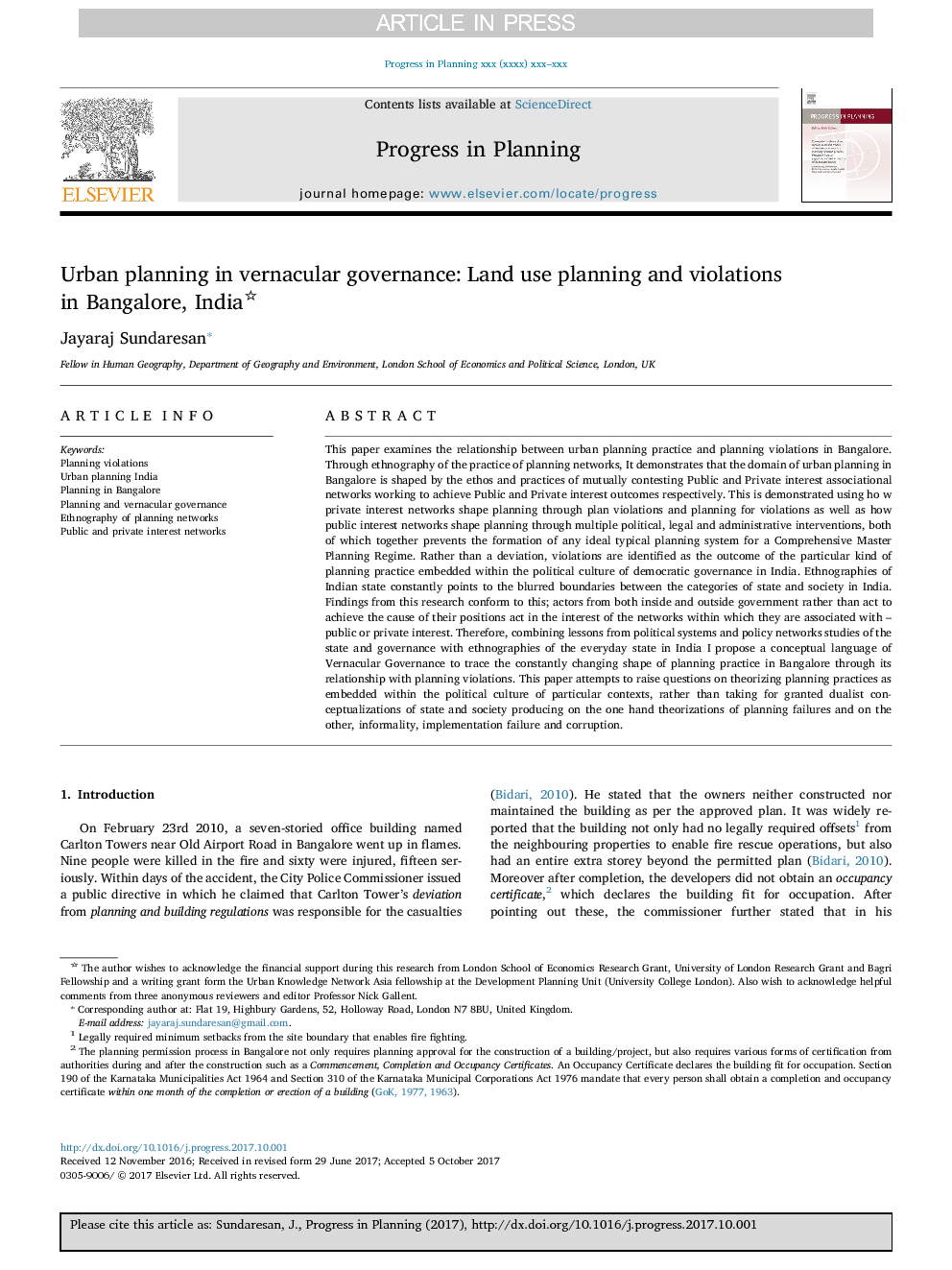ترجمه فارسی عنوان مقاله
برنامه ریزی شهری در حاکمیت بومی: برنامه ریزی استفاده از زمین و نقض در بنگلور، هند
عنوان انگلیسی
Urban planning in vernacular governance: Land use planning and violations in Bangalore, India
| کد مقاله | سال انتشار | تعداد صفحات مقاله انگلیسی |
|---|---|---|
| 144958 | 2017 | 23 صفحه PDF |
منبع

Publisher : Elsevier - Science Direct (الزویر - ساینس دایرکت)
Journal : Progress in Planning, Available online 21 October 2017
ترجمه کلمات کلیدی
نقض برنامه ریزی، برنامه ریزی شهری هند برنامه ریزی در بنگلور، برنامه ریزی و حاکمیت بومی، اتنوگرافی شبکه های برنامه ریزی، شبکه های منافع عمومی و خصوصی،
کلمات کلیدی انگلیسی
Planning violations; Urban planning India; Planning in Bangalore; Planning and vernacular governance; Ethnography of planning networks; Public and private interest networks;

